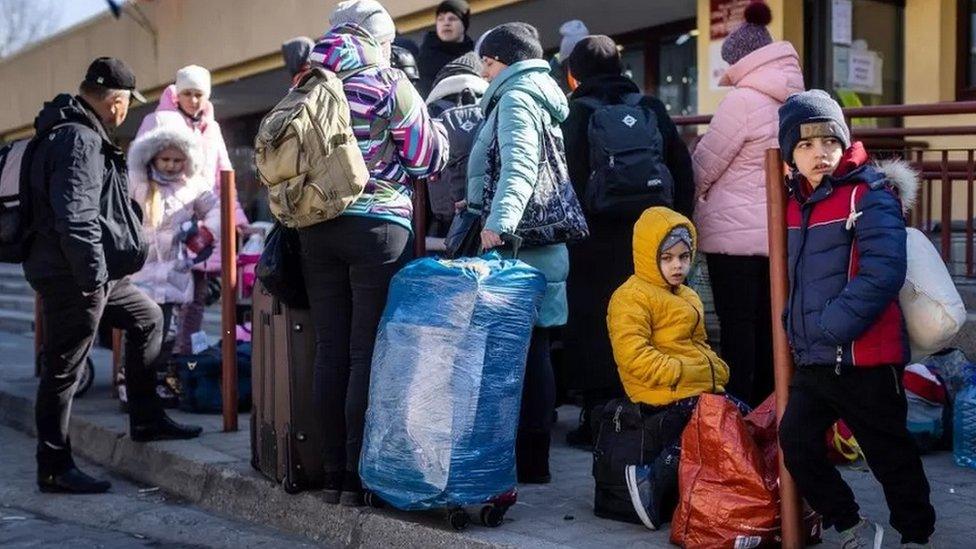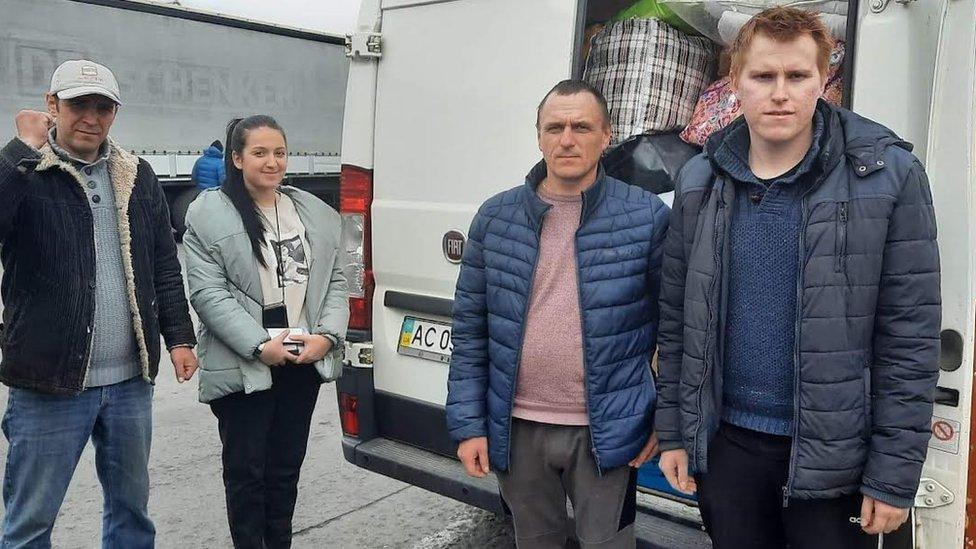Ukraine war: 'NI should prepare for surge in refugees'
- Published

One of the schemes helping Ukrainian refugees travel to Northern Ireland is Homes for Ukraine
Northern Ireland could see a surge of refugees this winter as fighting intensifies in Ukraine, a support group has said.
The Newry-based Hope for Ukraine urged local authorities to keep levels of assistance at current levels.
Newry, Mourne and Down District Council (NMDDC) said its advice centre will now open monthly instead of weekly.
The Executive Office, which leads the response to refugees, said numbers using the centre had fallen.
It said advice centres' opening hours were reviewed on a continuous basis.
"There is no longer a requirement for a centre to be held in the city for a full day each week," said a statement.
"Instead, assistance centres were set up in new locations, including Dungannon and Londonderry, where they had not previously been established and where a need had been identified.
"If the numbers arriving in a particular locality increase, we will adjust the opening times to respond to the changing need."
'New wave'
The number of Ukrainian refugees using the Newry centre reached its peak in May, when almost 200 people per week attended.
The executive said it was confident the centre could manage with similar levels if there was another increase during the winter period.
At a NMDDC committee meeting, the secretary of Hope for Ukraine, Andre Stokes, said he was expecting a new wave of refugees.
"With the cold weather coming in fast now and the escalation of the attacks on civilians by Russia, we are expecting a new wave of Ukrainian refugees into Ireland," he said.
"When the war moved away from the north of Ukraine some people went back, thinking they were safe, but that is no longer the case.
"There are people now so desperate, living without any heat or running water, the situation is just untenable."

Andre Stokes (far right), who has delivered aid to Ukraine, urged authorities to maintain support
Mr Stokes said authorities in Northern Ireland should be tightening up their operations in preparation for a potential rise in new arrivals.
The council's active and healthy communities committee confirmed it was downgrading its opening hours for assistance at Newry leisure centre from once a week to once a month.
'So much more needed'
Mariya Krupska, the group's secretary, said that while refugees were being housed, some of their other needs were not being met.
"A lot of people here were so generous at the start of the war, but I can see that when things like host payments did not happen, that things changed and doors did not open anymore," she said.
But there was much more that needed to be done, she added.
"For example there is a Ukrainian family with a disabled adult son and a young boy with autism," said Ms Krupska.
"They are living in a small cottage in the countryside with no other support, not even a hoist to lift the adult son to bed or the toilet."
She urged the council to provide more operations at the advice centre.
"It needs to happen before the next big wave comes, so we are prepared," she said.